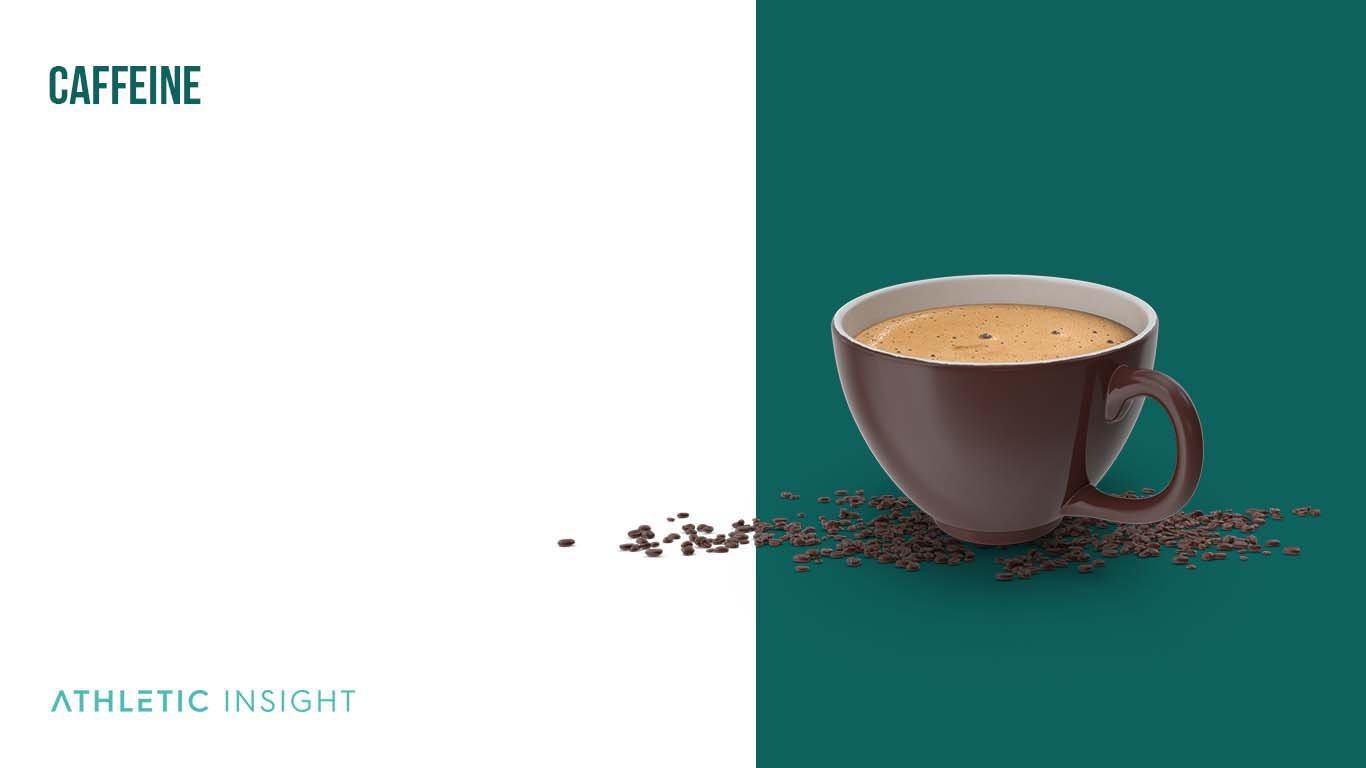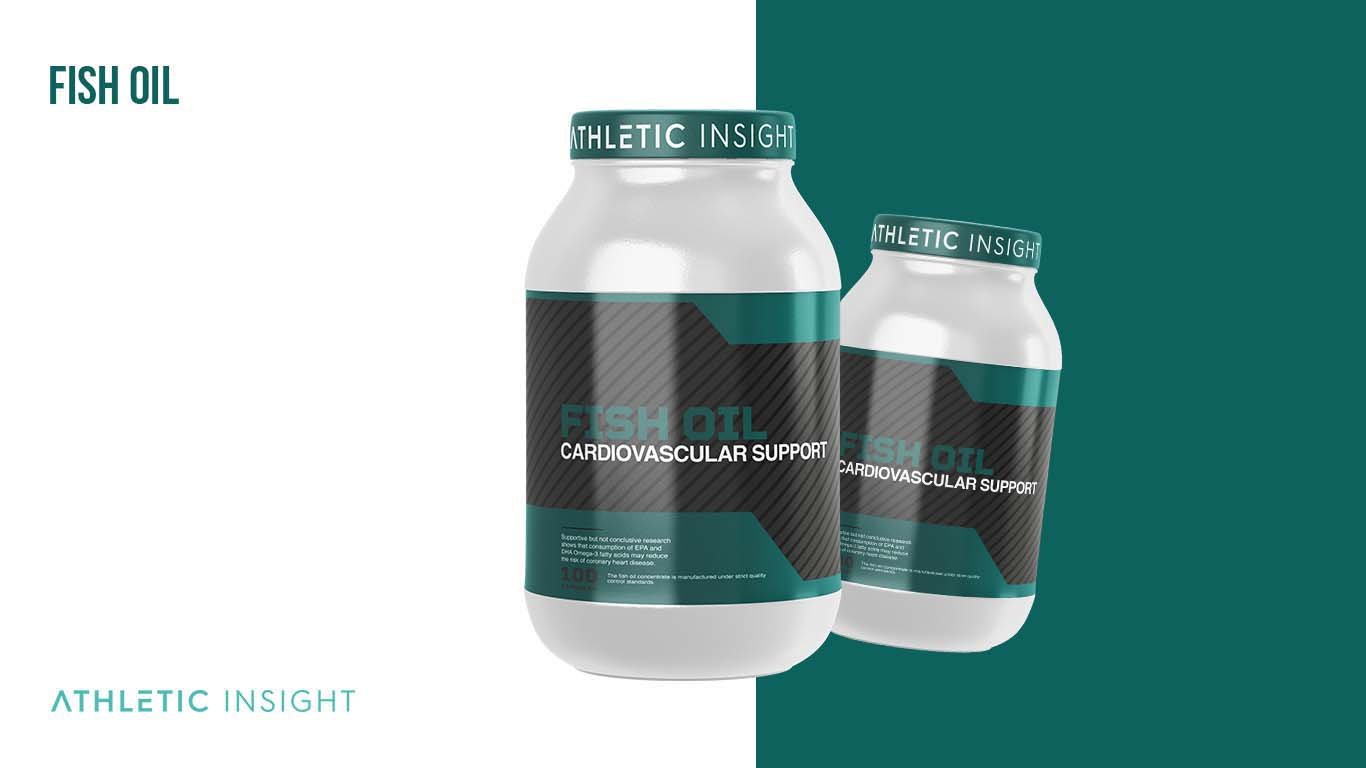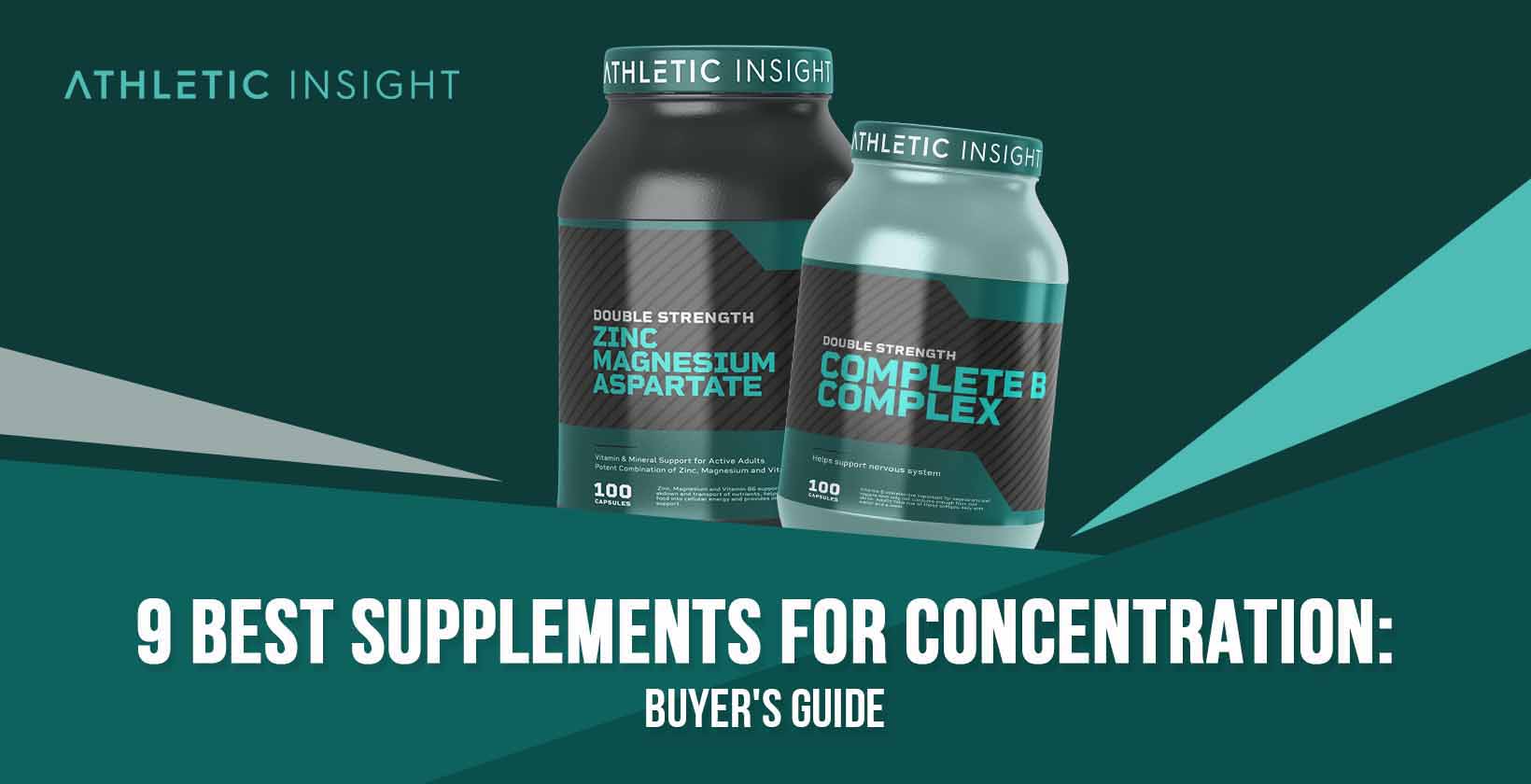Concentration supplements, often known as ‘nootropics,’ are natural or synthetic compounds that enhance cognitive abilities, specifically concentration. The criteria for determining the best supplements for concentration include proven effectiveness, safety profile, quality of ingredients, cost-effectiveness, and user reviews. The ability to compare them relies on understanding these criteria and applying them consistently to different supplements.
The top three supplements for concentration include Creatine, Caffeine, and Bacopa Monnieri, yet this guide will detail ten potential supplements that can bolster focus and cognitive clarity.
1. Creatine
Creatine is a naturally occurring compound found in muscle cells. It is renowned for its energy-boosting capabilities but is also gaining recognition for its cognitive-enhancing properties. The primary feature of Creatine is its capacity to donate phosphate to ADP molecules, creating ATP, the body’s primary energy source. By this mechanism, Creatine may enhance both physical and mental energy levels.
The effects of Creatine on concentration are noteworthy. Research suggests an increase in short-term memory and reasoning skills, making it beneficial for tasks requiring sustained mental effort. Moreover, it is safe to use, with side effects primarily reported when consuming excessive amounts, including dehydration and digestive issues.
Usage is simple as it is typically taken orally, often in a powdered form mixed with water. The best creatine for muscle gain includes Thorne, Transparent Labs, Optimum Nutrition, MuscleTech, and BulkSupplements.
Bear in mind, staying well-hydrated while using Creatine is critical, as the compound pulls water into muscle cells. Be aware that not everyone responds to Creatine supplementation, with some individuals known as ‘non-responders.’
Pricing varies based on the brand and quantity purchased, but creatine is considered a cost-effective supplement.
2. Caffeine
Caffeine, a natural stimulant most commonly found in tea, coffee, and dark chocolate, is well-known for its wakefulness-promoting effects. As a psychoactive substance, it acts on the central nervous system, temporarily warding off drowsiness and restoring alertness.

Beyond promoting alertness, caffeine can enhance various aspects of cognitive performance, including concentration, memory, and mood. However, it also comes with potential side effects such as restlessness, insomnia, and palpitations, especially at high doses.
Regular coffee or tea can provide a dose of caffeine, but concentrated supplements are also available. If you decide to skip out on drinking coffee and would like to take a caffeine supplement, the top brands include Nutricost, ProLab, and Zhou Nutrition.
It’s important to know your tolerance and be mindful of total daily caffeine intake, considering all sources. Overconsumption can lead to ‘caffeine crash’—a state of fatigue once the effects wear off. Cost-wise, caffeine is affordable, but the price can vary depending on the brand and dosage.
3. Bacopa Monnieri
Bacopa Monnieri is a perennial, creeping herb native to the wetlands of India, popular in Ayurvedic medicine. This plant’s key feature is its rich content of bacosides, compounds believed to enhance brain function.
Studies suggest that Bacopa Monnieri might improve various aspects of cognitive function, including memory, attention, and the speed of processing visual information. Its benefits extend to mood enhancement and stress reduction.
Common side effects, though usually mild, include nausea, cramping, bloating, and diarrhea. Usage typically involves taking capsules of the dried herb.
Quality brands offering Bacopa Monnieri include Himalaya, Nootropics Depot, and Nature’s Answer. Note that this supplement often takes a few weeks to have noticeable effects on cognition. Additionally, it is often taken with a fat source to improve absorption, as bacosides are fat-soluble compounds.
While Bacopa Monnieri is a bit pricier than some other concentration supplements, its multifaceted cognitive benefits may justify the cost for many users.
4. Zinc
Zinc is a crucial trace mineral necessary for numerous bodily functions, including cognitive functions. This supplement’s principal feature lies in its role in maintaining brain cell health, through regulation of neurotransmitter release and nerve impulse conduction.

Evidence points towards Zinc’s potential to enhance memory and cognition. However, Zinc deficiency is more typically associated with reduced cognition, so supplementation is most likely to benefit those with low zinc levels.
Common side effects of Zinc are mild, often digestive in nature, and more common with high doses. Zinc can be taken in capsule or tablet form, with the top zinc supplement brands including NOW Foods, Nature’s Way, and Garden of Life.
Users should be aware of the potential for Zinc to interfere with the absorption of certain medications, and it’s important to consider dietary intake when supplementing to avoid exceeding the recommended daily dose. The cost of Zinc varies based on form and brand, but it is generally an affordable supplement.
5. Ginkgo Biloba
Ginkgo Biloba is one of the oldest tree species worldwide and has long been used in traditional medicine. The main feature of Ginkgo is its purported ability to improve blood flow, including to the brain, which is why it’s often suggested for cognitive enhancement.
Scientific research suggests Ginkgo can improve memory, attention, and mental processing speed, especially for those with cognitive decline or mental health conditions. Side effects are typically minor but can include headaches, dizziness, heart palpitations, and digestive upset.
Usage involves taking capsules or tablets, with top brands including Nature’s Bounty, NOW Foods, and Gaia Herbs. The most important consideration when taking Ginkgo is its potential to interact with certain medications, including blood thinners. It’s crucial to discuss this with a healthcare provider before beginning supplementation.
The cost of Ginkgo varies based on form and brand but is generally mid-range in price.
6. Fish Oil
Fish oil is a rich source of the omega-3 fatty acids DHA and EPA, both critical for brain health. The key feature of fish oil is its potent anti-inflammatory properties and its role in maintaining the structural integrity of brain cells.

Fish oil supplementation has been linked to improved memory, mood, and cognitive function. Mild side effects may include digestive upset and a ‘fishy’ aftertaste. It’s typically taken as a liquid or capsule.
The overall best fish oil supplement brands include Thorne, Nordic Naturals, Nature Made, and Viva Naturals. An essential consideration for fish oil is the quality and purity of the product, as low-quality fish oils may contain contaminants.
The cost of fish oil varies greatly, depending largely on the quality of the product. For a quality brand such as Thorne, it will cost about $0.25 per gelcap.
7. Choline
Choline is an essential nutrient crucial for several physiological functions, including cognitive function. It’s a key component of acetylcholine, a neurotransmitter involved in memory and muscle control.
Research shows that Choline supplementation might improve memory and cognitive function, particularly in older adults. Common side effects are mild and include digestive upset and headache.
Usage for Choline typically involves taking capsules. The top choline supplement brands include Thorne, NOW Foods, Nature’s Bounty, and Jarrow Formulas. Note that certain individuals may require more choline than others, including pregnant and breastfeeding women.
Choline supplements vary in price, depending on form and brand. However, choline is regarded as a cost effective supplement overall.
8. Vitamin B Complex
Vitamin B Complex refers to the group of eight B vitamins, which play a pivotal role in brain function and development. These vitamins contribute to the health of the nervous system and the production of red blood cells, among other things. Notable members include B6 (Pyridoxine), B9 (Folate), and B12 (Cobalamin), all of which are crucial for brain health.
Supplementing with a Vitamin B Complex may support brain health, mood, and energy levels. Possible side effects include gastrointestinal discomfort, though these supplements are generally well-tolerated.
Leading Vitamin B Complex supplements include those from brands such as Thorne, Garden of Life, Nature’s Way, and Solgar. When considering Vitamin B Complex supplementation, it’s beneficial to acknowledge that some people, particularly older adults and vegetarians, are more likely to have a deficiency in certain B vitamins, particularly B12.
The cost of a Vitamin B Complex supplement varies, primarily depending on the brand and the specific formulation of the product.
9. Vinpocetine
Vinpocetine, a synthetic compound, is derived from the periwinkle plant. It has been widely used in many countries to treat cognitive impairments and age-related memory issues. The major feature of Vinpocetine is its potential to increase blood flow to the brain, which may support brain function.
The use of Vinpocetine may lead to improvements in memory, attention, and cognitive performance. Potential side effects include a headache, dizziness, and digestive upset.
Typically taken in capsule or tablet form, leading brands include Thorne, Source Naturals, Life Extension, and NOW Foods. As a synthetic compound, it’s important to consult a healthcare provider before starting Vinpocetine, especially if currently on any medication.
The price of Vinpocetine varies, but it is typically moderately priced compared to most supplements. For a quality dose of Vinpocetine, Thorne is the recommended manufacturer.
10. S-Adenosyl Methionine
S-Adenosyl Methionine, often abbreviated as SAMe, is a compound naturally produced in the body. It is crucial for several bodily processes, including brain function. SAMe’s principal feature is its role in the production and regulation of certain hormones and neurotransmitters.
SAMe supplementation may enhance mood and cognitive function, particularly in those with depression or cognitive decline. It’s typically well-tolerated, but side effects can include digestive upset, dry mouth, and restlessness.
SAMe is usually taken in tablet form, with top brands including Doctor’s Best, Jarrow Formulas, and Nature Made. When considering SAMe supplementation, note that it can interact with certain medications, particularly antidepressants, so it’s essential to discuss with a healthcare provider.
SAMe tends to be one of the pricier cognitive supplements, but users often find the benefits justify the cost.
What Do Concentration Supplements Do?
Concentration supplements work primarily by enhancing the brain’s functioning, either through improving blood flow, providing the necessary nutrients for neurotransmitter synthesis, reducing inflammation, or increasing energy production. The exact mechanism varies depending on the supplement, but the overall effect is an improvement in cognitive processes such as memory, attention, and mental processing speed.
What are the Benefits of Concentration Supplements?
Concentration supplements can provide several benefits, including improved memory, faster cognitive processing, increased attention span, and better mood. They can also offer additional health benefits, depending on the supplement. For instance, fish oil can support cardiovascular health, and Zinc can boost the immune system.
What are the Risk of Taking Concentration Supplements?
While concentration supplements are generally safe for most people, they can carry risks, particularly when taken in large doses or without a healthcare provider’s guidance. Possible risks include digestive upset, interactions with medications, and, in rare cases, more serious side effects like liver damage (in the case of high-dose, long-term use of certain supplements). It’s crucial to consider these risks and discuss them with a healthcare provider before starting any new supplement regimen.
How to Choose the Best Concentration Supplements?
When selecting a concentration supplement, consider the following factors; effectiveness, safety, quality, cost, and personal needs.
- Effectiveness: Look for supplements with scientific evidence supporting their use for concentration enhancement.
- Safety: Ensure the supplement has a good safety profile and minimal side effects.
- Quality: Choose supplements from reputable brands known for high-quality products.
- Cost: Consider whether the supplement is affordable for long-term use.
- Personal Needs: Consider whether the supplement suits your specific needs and health situation. It can be beneficial to discuss these factors with a healthcare provider.
Who Can Take Concentration Supplements?
Concentration supplements can be beneficial for a wide range of individuals. They’re often used by students, professionals, and athletes seeking a mental edge. Older adults and individuals with certain health conditions may also find these supplements beneficial. However, they’re not suitable for everyone such as pregnant and breastfeeding women, children, and individuals with specific medical conditions or taking certain medications.
Is a Prescription Required When Buying Concentration Supplements?
No, in most cases, a prescription is not required to purchase concentration supplements. They’re often available over-the-counter in pharmacies, health food stores, and online. However, certain powerful or potentially risky supplements might be regulated and require a prescription.



